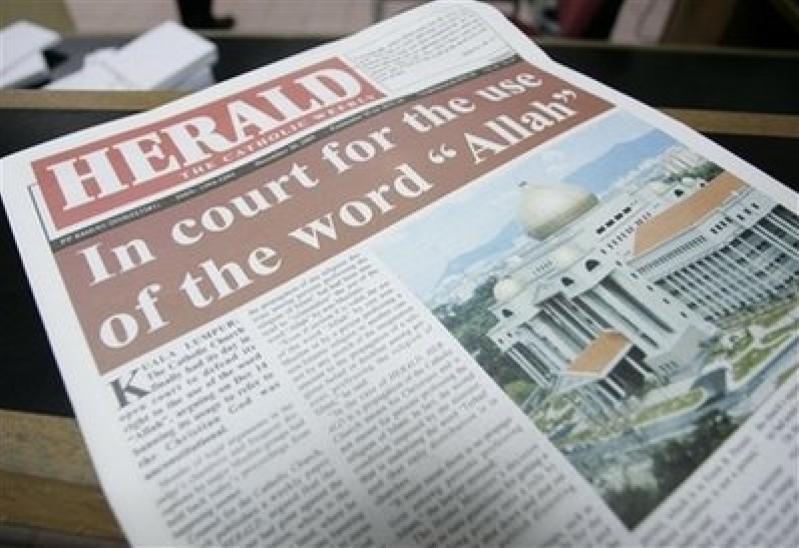
Malaysia’s government will file an appeal against a recent ruling by the Supreme Court that found a ban on the use of the word “Allah” by non-Muslims to be unconstitutional, government officials said Sunday.
"The government is very much aware and concerned of various reactions that it has received after the recent High Court decision,” Prime Minister Datuk Seri Najib Tun Razak told reporters Sunday.
"The issue is very sensitive and touches on the feelings of Muslims, we need to be calm now and let the matter be resolved through the courts," he added.
After Thursday’s landmark ruling, Muslim activists were quick to mobilize, including the National Union of Malaysian Muslim Students, which urged the government to take the case to the Appeals Court, arguing that Christian missionaries using the word Allah could trick Muslims into leaving their faith.
Some even managed to hack into the website of the Roman Catholic Church’s weekly Malaysian publication, The Herald, which sparked the internationally-watched court battle.
On Thursday, two years after The Herald first filed suit, Judge Datuk Lau Bee Lan announced that the word “Allah” is not exclusive to Islam and that the government’s Home Ministry is “not empowered” to ban non-Muslims from using the word.
“This … means that the Bahasa Malaysia-speaking community of the Christian faith can now continue to freely use the word ‘Allah’ without any interference from the authorities,” the Rev. Fr. Lawrence Andrew, editor of The Herald, told reporters in Kuala Lumpur Thursday.
Malaysia’s Catholic Church had filed a lawsuit against the government late 2007 after the government threatened to revoke The Herald’s printing permit if it did not cease use of the word “Allah” in the Malay language section of its newspaper.
While Home Minister Datuk Seri Syed Hamid Albar prohibited The Herald from using of the word "Allah" on the grounds of national security and to avoid misunderstanding and confusion among Muslims, the Catholic Church argued that the barring of non-Muslims from using the word “Allah” is unconstitutional and violates freedom of religion.
Lawyers for the government, meanwhile, argued that the ban on the use of the word "Allah" in The Herald does not affect the publication’s freedom of religion nor that of other Christians.
According to the CIA World Factbook, 60.4 percent of Malaysia's 25.7 million people ascribe to Islam. Around 19.2 percent, meanwhile, is Buddhist, and 9.1 percent is Christian.
In general, Muslims enjoy special privileges in Malaysia as Islam is the dominant religion.







